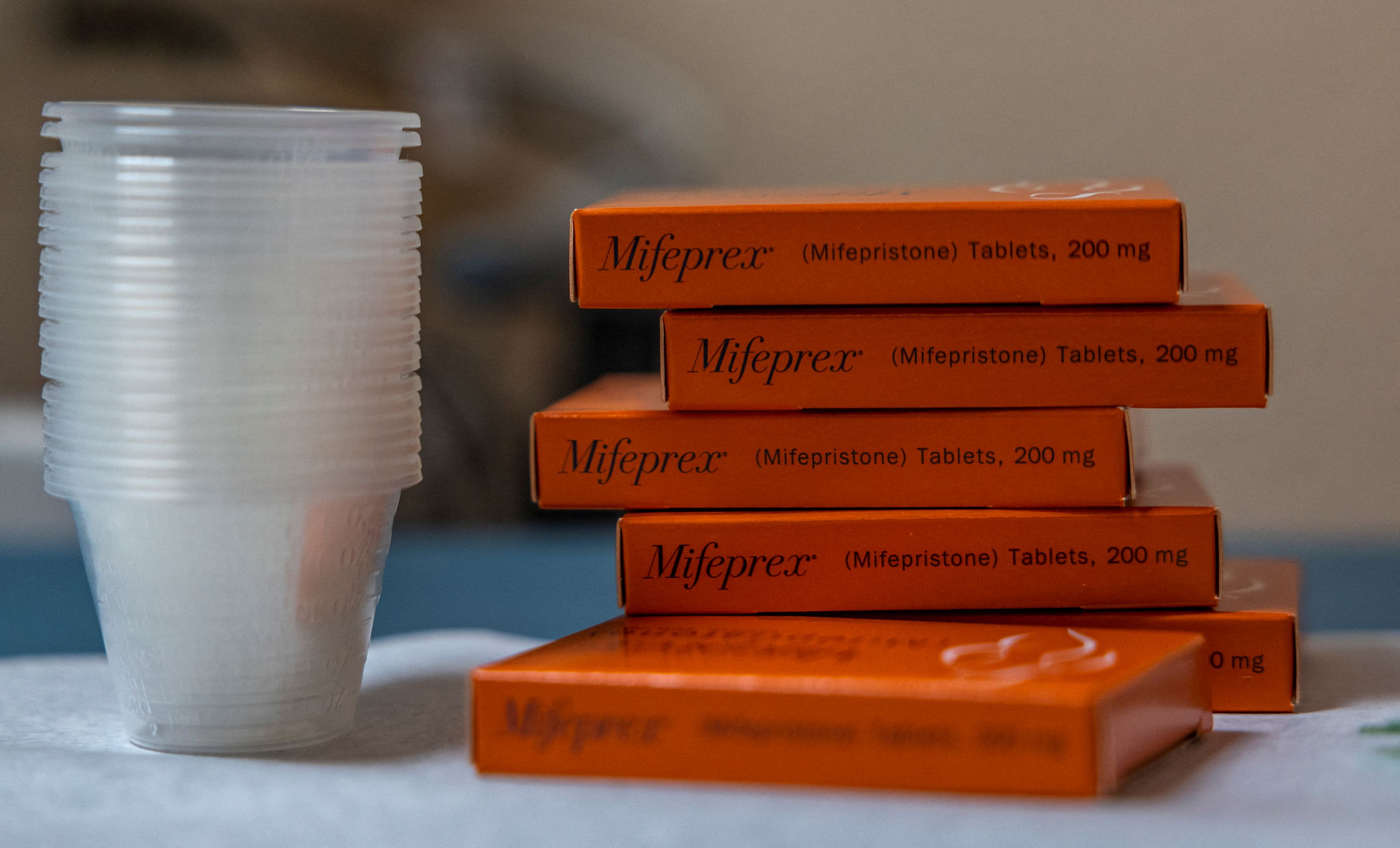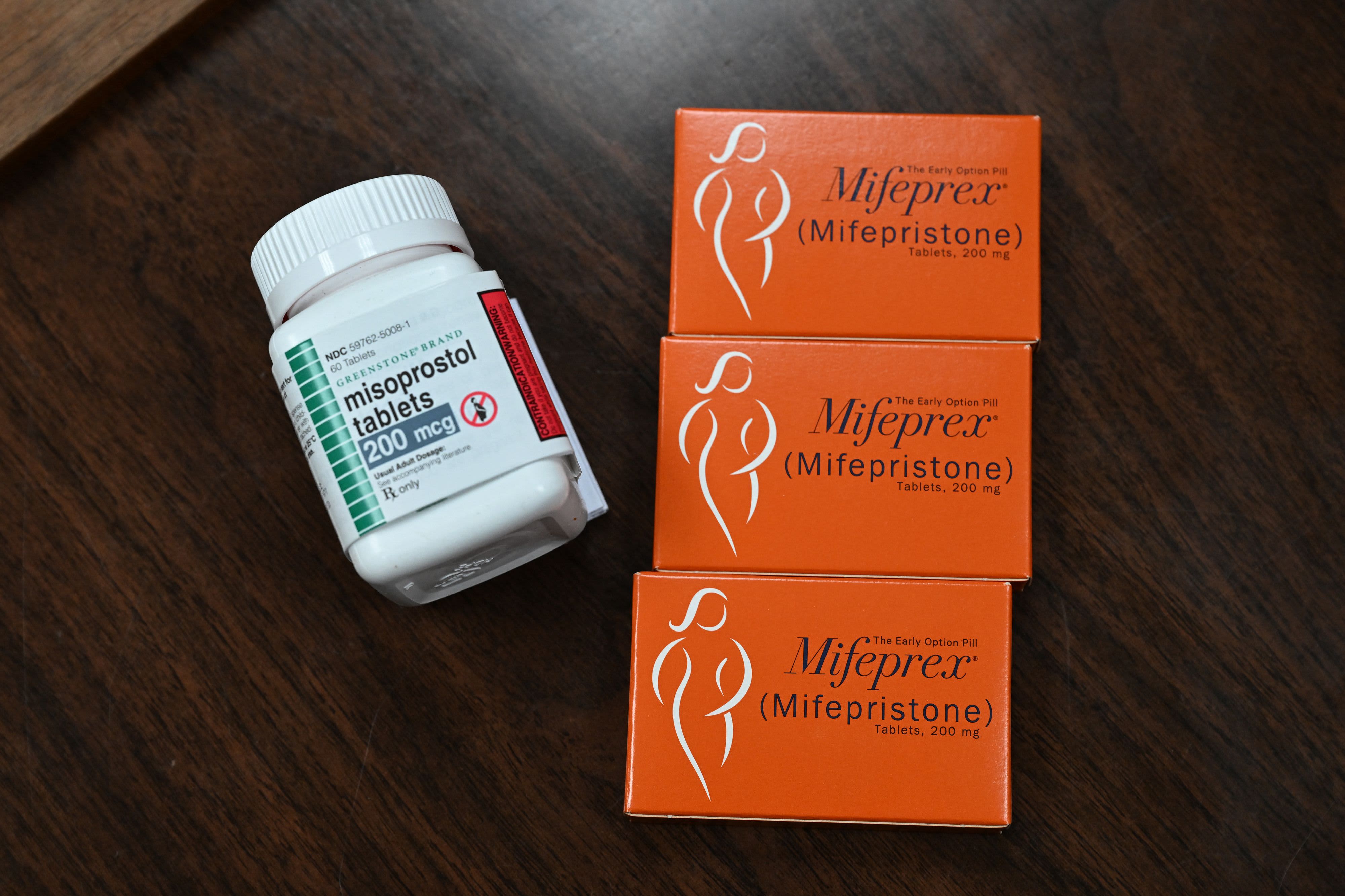
A Texas lawsuit with a key deadline this month is posing a threat to the nationwide availability of medication abortion, which now accounts for the majority of abortions in the U.S.
The case filed by abortion opponents who helped challenge Roe v. Wade seeks to reverse a decades-old approval by the Food and Drug Administration.
If a federal judge appointed by former President Donald Trump sides with them, it could halt the supply of the drug mifepristone in all states, both where abortion is banned and where it remains legal.
“It could have an immediate impact on the country,” said Mini Timmaraju, president of NARAL Pro-Choice America. “In some ways, this is a backdoor ban on abortion.”
Get DFW local news, weather forecasts and entertainment stories to your inbox. Sign up for NBC DFW newsletters.
On Friday, a group of 22 Democratic-led states weighed in, saying the consequences of reversing the approval could be “nothing short of catastrophic. A similar-sized group of Republican states also filed briefs supporting the reversal, saying the ability to order pills by mail undermines their laws banning abortion.
U.S. District Judge Matthew Kacsmaryk has not indicated exactly when or how he will rule, but groups like Timmaraju’s have been preparing for a possible decision shortly after a Feb. 24 filing deadline. There is scant precedent for a lone judge overruling the FDA’s scientific decisions. A swift appeal of any ruling is likely.
The lawsuit was filed by the group Alliance Defending Freedom, which was also involved in the Mississippi case that led to Roe v. Wade being overturned.
“Our representatives in Congress created the FDA and gave the FDA the responsibility to make sure that drugs are safe before they’re allowed on the market … the FDA failed that responsibility,” said Julie Blake, senior counsel for the group.
They argue the FDA overstepped its authority in approving mifepristone by using an accelerated review process reserved for drugs to treat “serious or life-threatening illnesses.”
But in its legal response, the agency said it didn’t accelerate the drug’s approval, which came four years after the manufacturer first submitted its application to market the pill.
The FDA approved mifepristone — in combination with a second drug — as a safe and effective method for ending a pregnancy in 2000. Common side effects include cramping and light bleeding. Cases of more severe bleeding requiring emergency care are very rare.
Halting access to the drug more than 20 years after approval would be “extraordinary and unprecedented,” federal attorneys stated in a legal filing.
Kacsmaryk, who previously ruled against a program providing free birth control to minors in Texas, could also issue a ruling rolling back regulators’ decision to ease restrictions on the pill’s availability. Those have been based on scientific studies showing women can safely use the drug at home.
In late 2021, the FDA removed a requirement that women pick up the drug in person. Last month the agency dropped another requirement that prevented most pharmacies from dispensing the pill.
Medication abortion accounted for over half of the abortions before Roe v Wade was overturned, according to research from the Guttmacher Institute. It’s grown more important since then, said Elizabeth Nash, state policy analyst for the science-based research group that supports abortion rights.
“The clinics that are open in the receiving states are stretched thin, they don’t have a lot of give in their capacity and being able to provide medication abortion is very, very important,” she said.
Abortion medication is approved for use up to the 10th week of pregnancy. Mifepristone is taken first, swallowed by mouth. The drug dilates the cervix and blocks the effects of the hormone progesterone, which is needed to sustain a pregnancy.
Misoprostol, a drug also used to treat stomach ulcers, is taken 24 to 48 hours later. It causes the uterus to cramp and contract, causing bleeding and expelling pregnancy tissue. The combination has been shown to be more than 95% effective in ending pregnancies up to 10 weeks.
If mifepristone is pulled, providers could prescribe misoprostol alone instead, an approach that is used in many parts of the world, but would be a big shift in U.S. practice and has not been found to be quite as effective.
Such a ruling could also increase the need for surgical abortion and further increase wait times at clinics, which are already weekslong in some cases after the U.S. Supreme Court ruling overturning Roe, Nash said.



